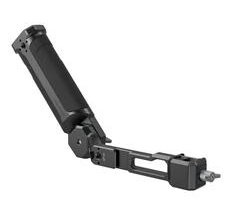Remote Online Notarization, Electronic Notarization, and Mobile Notarization Explained

If you are looking to notarize some critical documents, you will come across terms like electronic notarization, mobile notarization, and remote online notarization. These terms are hallmarks in the notarization world, but they may be challenging to understand if you are unfamiliar with the context of different types of notarization. With that in mind, we will discuss the differences between electronic notarization, mobile notarization, and remote online notarization.
To better understand different notarizations and how they work, you need to understand the notary public’s role. A notary public is an individual commissioned by a state; they serve as an impartial and unbiased witness by identifying the parties involved in the notary. The main objective of a notary public is to prevent fraud by establishing a person signed a document.
Traditional notarization is still widely used despite the changing shift to virtual notarization. A notary public can be found in legal offices, banks and shipping stores. They operate only at specific hours, meaning you should seek services around their specified schedule.
Different notarial acts include mobile, electronic, online, or remote online notarization. Despite their various functions and use cases, they all have a similar objective –deter fraud. Below is a breakdown of each notarial act.
Online or Remote online notarization
Remote online notarization is a modern way of notarizing documents; it uses audio-visual technologies like a computer or a mobile device. It is a highly secure approach to notarizing documents and cuts the need for in-person signing. Notarizing your documents through remote online notarization is a simple process; you only need to upload the relevant documents online and complete primary identity verification or authentication.
More people are leaning toward remote online notarization because of the convenient and flexible process. Not having to meet the involved parties is a plus, especially since the pandemic in 2019. Remote online notarization continues to grow in popularity and practicality due to advantages like better borrower experience, improved fraud prevention, reduced human error, and improved turnaround time.
Electronic notarization
As the name might suggest, electronic notarization uses an electronic tamper-proof seal instead of the regular ink-based signature. However, this form of notarization requires both parties to be present simultaneously. The main benefit of electronic notarization is security; it is less likely for an unauthorized individual to alter the original document. While electronic notarization doesn’t eliminate the need for physical meetings, the process is more secure than traditional notarization; hence electronic notary services are highly sought in the market.
Like traditional notarization, electronic notarization works in favor of all parties with complete transparency. However, unlike online notarization, you cannot perform electronic notarization remotely. The electronic signature and stamp must be unique, independent and verifiable. Once the digital documents have been sealed electronically, no third party can remove the stamp.
Although a public notary is involved in electronic notarization, it is essential to note that not every notary is authorized or has the skill to perform electronic notarization. A notary must register with the official body of the Commonwealth Secretary and demonstrate advanced tech skills related to electronic seals.
Mobile notarization
A mobile notary extracts the work to find notary services, so they see your way to you. People often describe a mobile notary as a public notary traveling from place to place. They are often useful with mortgage closings performed across state lines. The main advantage of mobile notarization is that you don’t have to make travel arrangements to find a notary. Therefore, notarization becomes easy since you can perform it in the comfort of wherever you may be. You can also work your schedule meaning mobile notarization does not restrict you from seeking services during specific hours.
Although mobile notarization is flexible, you may incur additional expenses like a convenience fee. Because the mobile notary is coming to you, you may need to pay for their travel expenses and other costs. Since the service is available anywhere and anytime, mobile notarization allows you to schedule long operation hours on your own time.
The main difference between mobile notarization and other types of notaries is appointment booking. With mobile notarization, you don’t have to make any initial plans. However, in your efforts to find the right notary, the process can be more time-consuming than opting for a remote, electronic, or traditional public notary.
With so many notary service providers in the market today, it has become quite challenging for individuals to narrow down their options. But understanding the perks and drawbacks of each type of notarization helps you make an informed decision.




